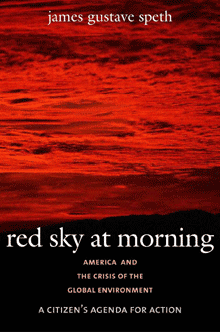Search For The Magic Bullet (1st in a series): The Environmental Revolution of the 21st Century
In Connecticut, we enjoy wonderful natural places to hike, beaches to comb, minerals and fossils to photograph. On this site we like to talk about trips to do all these things and more. Our hope is that we may enable others to get out and enjoy the state's natural wonders and that by doing so, more come to appreciate the need to conserve them.
From now on, we'll talk also about the urgent search that has begun to find new ways to bring people together and to tackle the great threat to our quality of life: global environmental change. Imagine that the state we leave our kids and grandkids may be one where the shore has been drowned by rising seas, or where maple trees have been removed from the landscape by rising temperatures. Is this the legacy we would choose?
The fact is that if we don't immediately make vast changes in the way we consume materials, goods and energy the choice will be made for us. Patterns of global change seen today are far beyond any seen before in the more than 3 billion year history of life on earth.
"We need to trigger a response that in historical terms will be seen as revolutionary—the Environmental Revolution of the twenty-first century," James Gustave Speth writes in his book, Red Sky at Morning. "Only such a response is likely to avert huge and even catastrophic environmental losses."

A founder of the Natural Resources Defense Council and advisor on environmental policy to President Carter, Speth has offered a unique and compelling perspective on the challenge before us. "An extremely important and authoritative book," wrote one reviewer, Simon Levin of Princeton University, the author of Fragile Dominion. "Gus Speth is one of the few people who has the credentials to integrate the scientific aspects of environmental decline with analysis of possible political solutions, and he does so brilliantly."
"One goal should be to find the spark that can set off a period of rapid change," Speth writes, "like the flowering of the domestic environmental agenda in the early 1970s. Part of the challenge is changing the perception of global-scale concerns so that they come alive with the immediacy and reality of our domestic challenges of the 1970s." During that time, key environmental problems were remedied by the passage of federal legislation such as the Clean Air and Clean Water Acts.
But the days of central governments simply legislating solutions to our environmental problems have more than likely passed. Nothing short of revolutionary changes in our ways of life, in our homes and communities, will suffice if we want to preserve for our grandkids a state like the one we inhabit today.
What can be done to effect change, to trigger what Speth calls the Environmental Revolution of the 21st century? We have some ideas. We'll talk more about our ideas, things that can be done here in Connecticut, and how to facilitate greater communication among local organizations and citizens in this blog. Please let us know your ideas as well.
0 Comments:
Post a Comment
<< Home